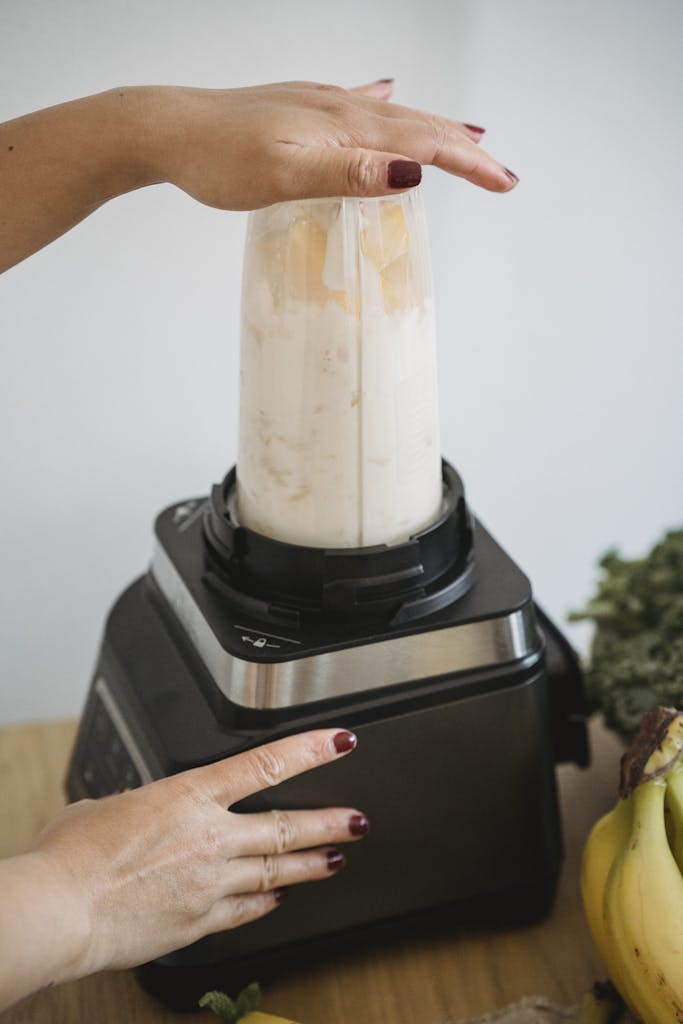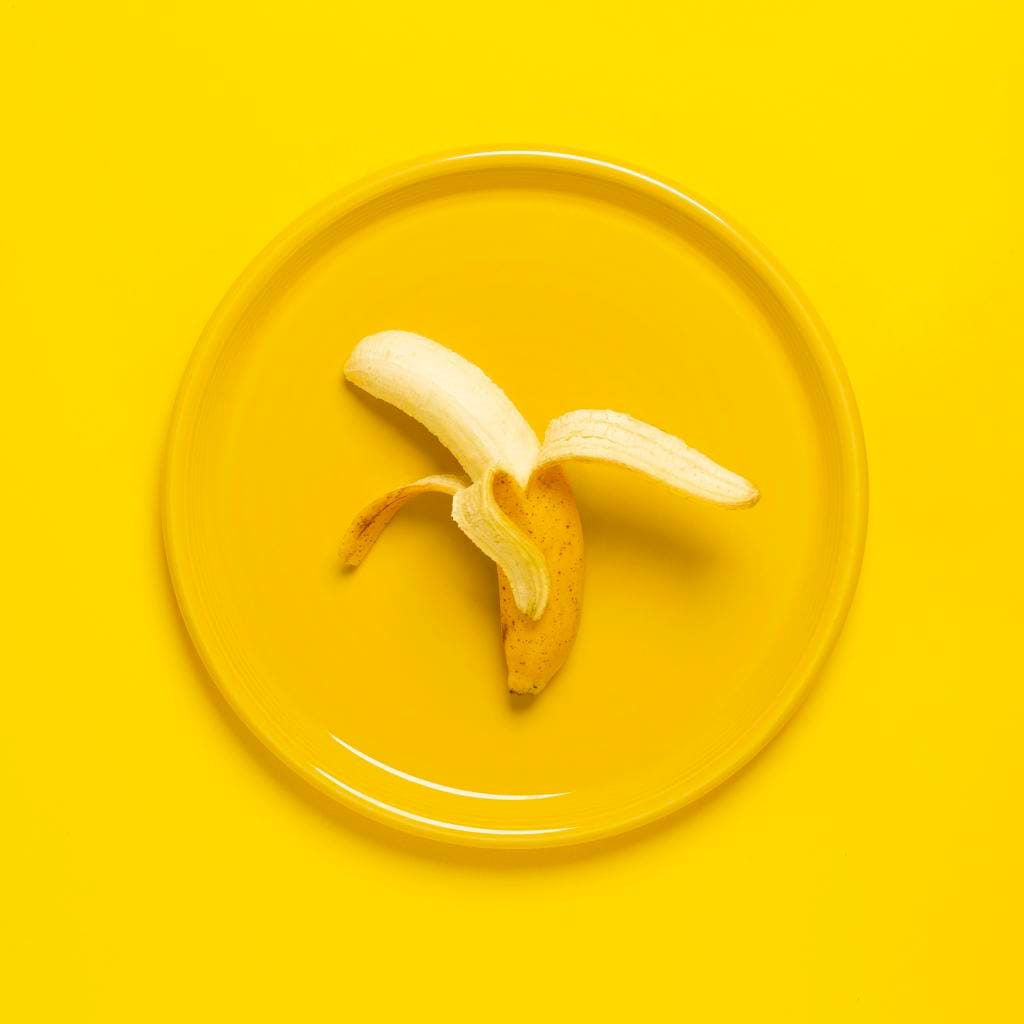FREE SHIPPING OVER $50
Are Bananas Banned? What Experts Say About This Fruit in Your Healthy Smoothie.

You wake up, grab your blender, and toss in your usual suspects: a handful of spinach, a scoop of protein powder, some liquid base, and, of course, that reliable, creamy banana. For many, the banana is the undisputed king of the smoothie, adding natural sweetness, a fantastic texture, and a burst of energy.
But lately, whispers have turned into louder questions across the nutrition world: Are bananas banned from our healthy smoothies? Has this beloved fruit fallen out of favor with experts due to its sugar content? It’s easy to get confused when social media or new diet trends suddenly demonize a food we once considered a staple.
The Banana’s Bad Rap: Why the Scrutiny?

It’s true: bananas are a fruit, and like all fruits, they contain natural sugars. A medium-sized banana packs about 14-15 grams of sugar, alongside roughly 100-110 calories. In an era where sugar and calories are often viewed as enemies of weight loss and optimal health, it’s easy to see how a sweet, calorie-dense fruit could become a target.
Here’s why bananas sometimes get a bad rap:
- Natural Sugar Content: As bananas ripen, their starches convert to sugars, increasing their sweetness and their glycemic index (GI). A very ripe banana can cause a faster spike in blood sugar compared to a greener one.
- Calorie Density: Compared to watery fruits like berries or melon, bananas are denser in calories. If you’re blending a couple of them into your smoothie without accounting for it, those calories can quickly add up, potentially hindering weight loss efforts.
- The Smoothie Effect: When you blend a banana (or any fruit), you break down its fiber structure. While the fiber is still present, it’s less intact than in whole fruit, which can sometimes lead to a slightly faster absorption of sugars compared to chewing the fruit in its solid form. This can be a concern for those mindful of blood sugar spikes.
Given these points, it’s understandable why some people might question whether bananas truly belong in a healthy smoothie, especially if weight loss or blood sugar management is a priority.
Beyond the Sugar: The Unquestionable Benefits of Bananas for Your Health
Here’s why experts still largely advocate for including bananas in a balanced diet:
- Potassium Powerhouse: This is perhaps the most famous banana benefit. A medium banana provides a significant dose of potassium, a vital electrolyte. Potassium is crucial for maintaining healthy blood pressure, supporting proper nerve function, and enabling muscle contractions. It plays a key role in fluid balance and can counteract the effects of excess sodium in your diet, making it excellent for cardiovascular health.
- Fiber Friend: Despite the concerns about its sugar content, bananas are a good source of dietary fiber. This fiber aids in digestion, promotes regular bowel movements, and can help you feel fuller for longer, which is a big win for weight loss. Unripe bananas, in particular, contain resistant starch, a type of fiber that acts as a prebiotic, feeding beneficial gut bacteria and supporting a healthy gut microbiome.
- Vitamin B6 Boost: Bananas are an excellent source of Vitamin B6 (pyridoxine). This vitamin is essential for over 100 enzyme reactions in your body, playing a key role in protein metabolism, red blood cell formation, and nervous system function. It’s also involved in creating neurotransmitters like serotonin and norepinephrine, impacting mood and sleep.
- Vitamin C Content: While not as high as oranges, bananas still contribute to your daily Vitamin C intake. Vitamin C is a powerful antioxidant that protects your cells from damage, supports your immune system, and is vital for skin health.
- Quick and Sustained Energy: The natural sugars in bananas, combined with their fiber content, provide a readily available energy source. This makes them an ideal pre-workout snack for sustained energy or a quick pick-me-up during a busy day. Athletes often rely on them for their convenient energy and electrolyte replenishment.
- Natural Sweetener & Creamy Texture: From a practical standpoint, bananas are unbeatable in smoothies. Their natural sweetness allows you to avoid adding processed sugars, and their creamy texture creates that desirable thickness without needing ice cream or other less healthy additions. This makes it easier to create genuinely healthy smoothies.
What Experts Say: The Nuance Behind Your Banana Smoothie
So, with all these pros and cons, are bananas banned? The overwhelming consensus from nutrition experts, including registered dietitians and medical professionals, is a resounding NO. Bananas are not “banned” and can absolutely be a part of a healthy smoothie and a balanced diet.
However, their advice comes with important nuances:
- It’s All About the Whole Smoothie: An isolated banana might be higher in sugar than a handful of spinach, but a smoothie’s health impact is determined by all its ingredients. If your smoothie also includes protein, healthy fats, and fiber from vegetables, the banana’s natural sugars are absorbed more slowly, mitigating any potential sugar spikes.
- Portion Control is Key: Even with incredibly nutritious foods, calories matter, especially for weight loss. A medium banana is a good serving. Blending two or three bananas into one smoothie can quickly rack up calories and sugar, making it harder to reach your goals.
- Ripeness Level Can Matter: For those particularly sensitive to blood sugar fluctuations (like individuals with diabetes or pre-diabetes), opting for a slightly less ripe, firmer banana can be beneficial. These contain more resistant starch and less simple sugar.
- Individual Needs and Activity Levels: An active individual or an athlete needing quick fuel before or after a workout can greatly benefit from the energy and potassium in a banana. Someone with a more sedentary lifestyle might need to be more mindful of their portion size and the overall sugar content of their smoothie.
- Balance is Best: The key message from experts is balance. Don’t rely solely on fruit for your smoothie base. Combine bananas with other ingredients that provide protein, healthy fats, and extra fiber to create a well-rounded and satisfying meal or snack.
Crafting Your Healthy Smoothie: Tips for Banana Lovers
- Pair It with Protein: Always include a source of protein. This could be a scoop of protein powder (whey, pea, rice), plain Greek yogurt, cottage cheese, or even a tablespoon of your favorite nut butter. Protein helps slow sugar absorption and keeps you feeling full.
- Add Healthy Fats: Incorporate a source of healthy fats. A quarter of an avocado, a tablespoon of chia seeds, flax seeds, or a small serving of nut butter will add creaminess, absorbable vitamins, and essential fats that contribute to satiety and balanced blood sugar.
- Sneak in Veggies: This is where the magic happens! Spinach, kale, cucumber, or even steamed cauliflower (you won’t taste it, promise!) are low in calories and high in vitamins, minerals, and fiber. They significantly boost the nutrition profile of your smoothie without adding much sugar.
- Choose Your Liquid Wisely: Opt for unsweetened almond milk, coconut milk, soy milk, or plain water. Avoid fruit juices as your liquid base, as they add significant amounts of extra sugar without the fiber benefits.
- Mind Your Portion Size: Stick to half a medium-sized banana for most smoothies, or a whole small banana, especially if you’re adding other sweet fruits or aiming for weight loss.
- Consider Freezing: Freezing a ripe banana before blending adds thickness and a chill without needing ice, making your smoothie extra creamy.
Conclusion
So, are bananas banned? Absolutely not. What experts say is clear: bananas remain a highly nutritious fruit that can offer significant health benefits, especially when consumed thoughtfully.
By understanding their nutritional profile and pairing them smartly with protein, healthy fats, and vegetables, you can continue to enjoy your banana smoothie as a delicious, convenient, and incredibly beneficial part of your healthy diet. It’s all about making informed choices and balancing your ingredients for optimal nutrition and weight loss success. Blend on, confidently!
Related Articles
- The Carb Redemption: Doctors & Dietitians Say THIS “Forbidden” Carb Unlocks Longevity
- The Gut Health Game-Changers: 5 Foods That Outrank Sauerkraut for a Thriving Microbiome
- Constipation Cure? This One Drink Guarantees You’ll Poop Before Breakfast (Dietitian Says!)
- Unlock Bone Broth’s FULL Power: Drink It At THIS Specific Time for a Healthy Gut, Better Sleep & Glowing Skin!
- Seniors’ “Youth Elixir”: 10 Irresistible Smoothies That MELT Belly Fat & Revive Digestion (Secret Recipes!)







